Rubiaceae
Morinda lucida
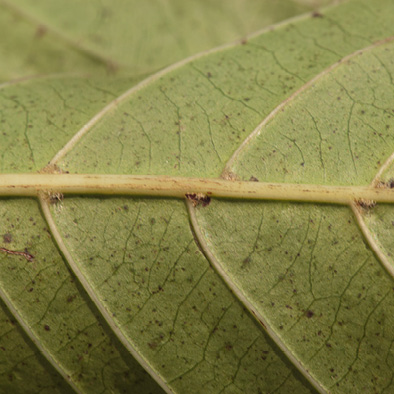
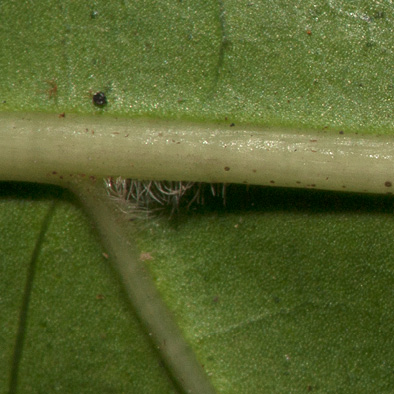
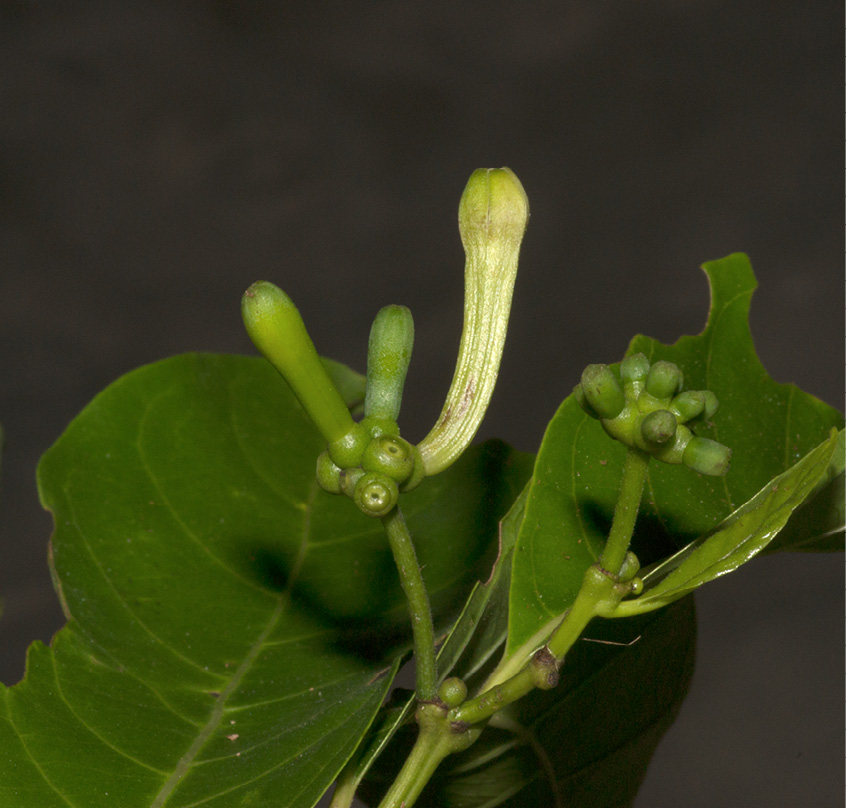
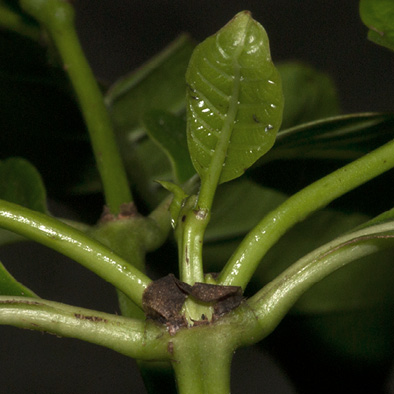
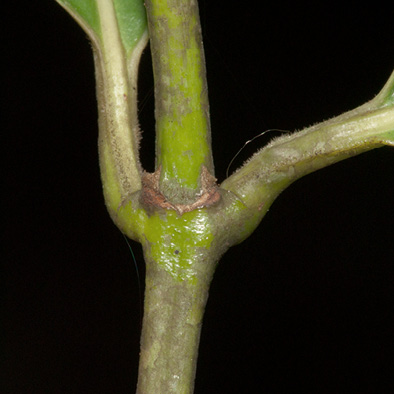
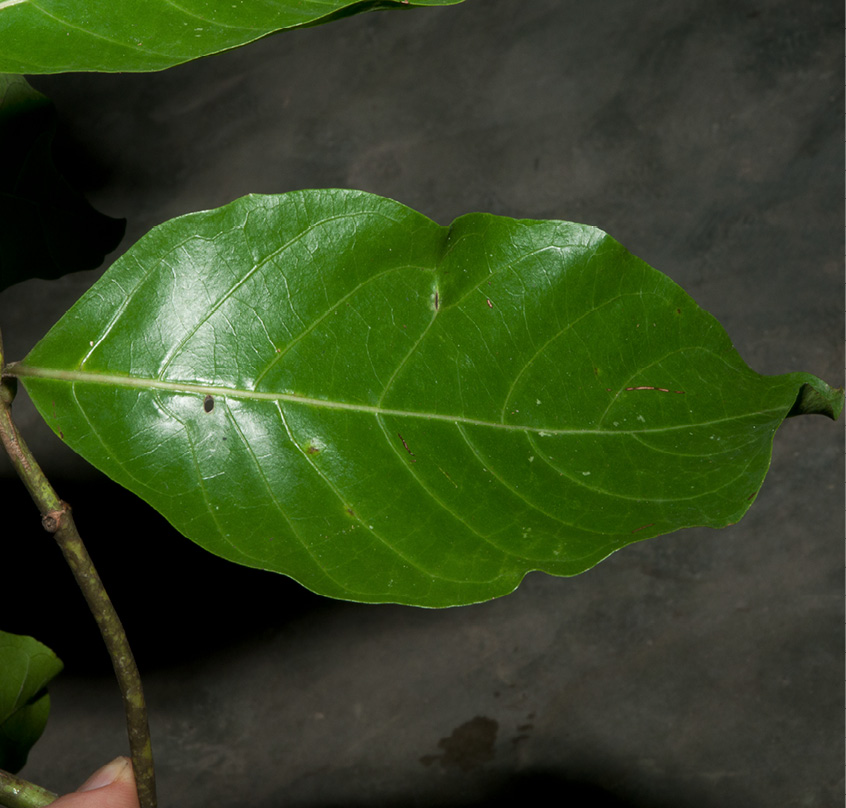
- Midrib and venation, leaf lower surface.
- Domatia in axil of vein and midrib, leaf lower surface.
- Flower buds and very young fruit.
- Young leaf and stipule.
- Petiole bases and remains of stipule.
- Leaf, upper surface.
General Information
This distinctive tree has light coloured, scaly or fissured bark and dark shiny leaves on the upper surface. The shiny leaves are the origin of the latin name ‘lucida’. Unlike most members of Rubiaceae the stipules fall very early, leaving a clear scar. The ‘fruit’ of this species is actually a compound inflorescence made of several flowers fused together at their base. The result is similar in structure to the fruit of Myrianthus arboreus. These fruit are especially appreciated by hornbills. In the axils of the veins and the midrib there are small tufts of hair called ‘domatia’. There are also two species of liana in this genus which occur in the area.
Ecology
The tree mostly grows in open places with lots of light such as roadsides and fields. It is only very rarely found in undisturbed forest.
Distribution
Distribution: Senegal to Sudan and Tanzania.
